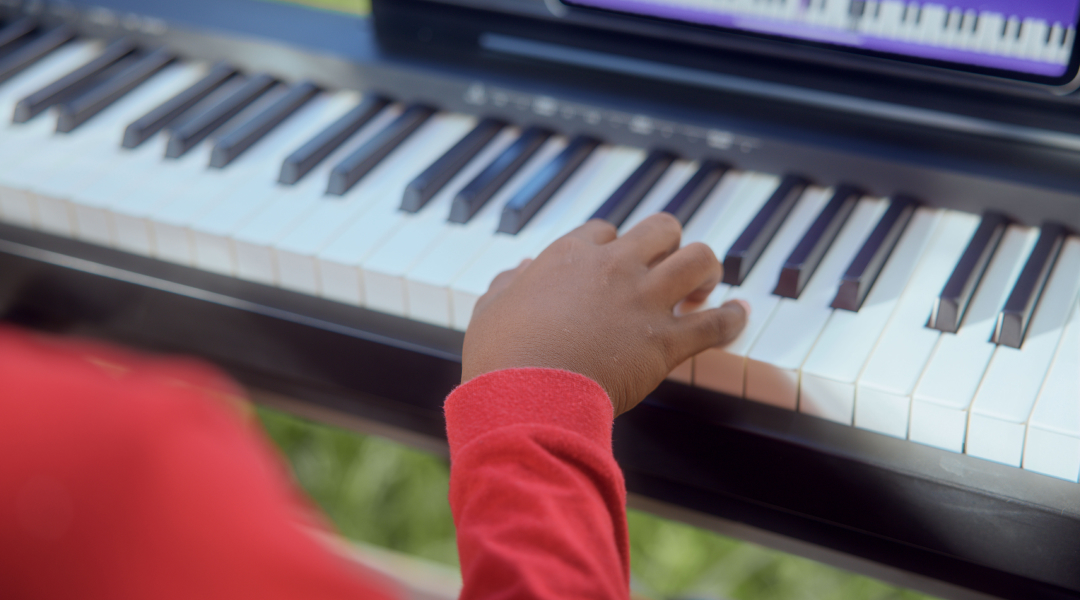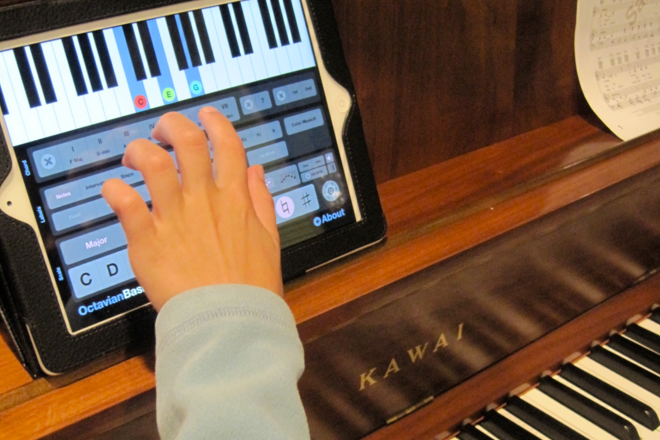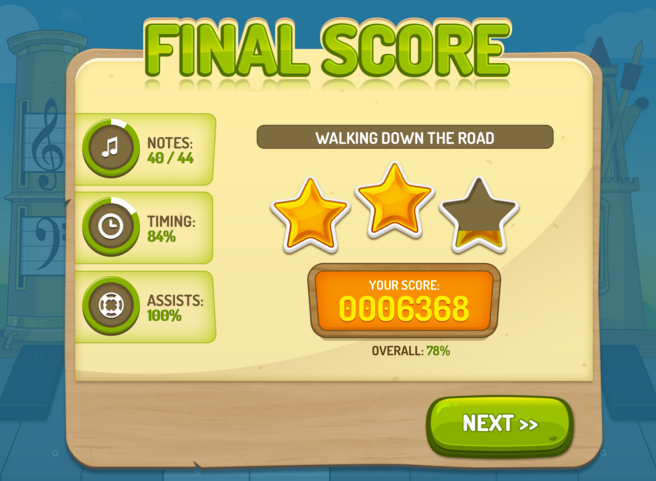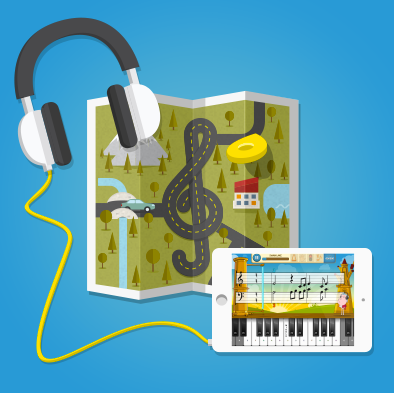Reducing Recital Anxiety
Harnessing the Power of Piano Maestro in Preparing for and Preforming in Recitals
Picture this: 6-year-old Henry nervously walks to the front of the room, ready to perform in his first piano recital ever. He is thinking about his 7-year-old friend Jake who just played Ode to Joy perfectly–with two hands. Henry understands he shouldn’t compare his three months of lessons to Jake’s twelve, but it’s hard not to think about how hard he’s had to work to get to this moment–playing Mary Had a Little Lamb with three fingers–and how many more lessons it will take before he can play grown-up sounding music like his friend Jake.
Now enter Piano Maestro. Same students, same amount of lessons. Henry is still nervous but can’t wait to show his family and friends how he gets to play piano and the iPad at the same time! He knows he will only use three notes and three fingers, but it will be far from boring. His performance of Glad You Came by The Wanted will be backed by a full rock band sound, complete with a full-color graphics display of his performance on the big screen so all can watch him earn a perfect-stars performance. He is confident he will do well because not only has he earned full marks while playing in his lesson with his teacher, he has also continued to achieve full marks in every practice session at home for the past two weeks. He knows his teacher feels he is ready, but more importantly, he knows he is ready. Henry can’t wait to share it with everyone!
How Piano Maestro Assists with Recital Preparation

Feedback can be the stimulus needed for progress, as well as the catalyst for building confidence.
As music teachers, one of our greatest joys is to watch our students’ eyes light up when they discover what they can do with music, when they start to realize their potential, and feel empowered to go home and show everyone what they learned. When all of these things come together it is a beautiful experience. Yet, more often than not, as the week wears on students’ old doubts and insecurities creep back in. They wish they had their teacher around right now to tell them how great they are and how far they’ve come.
Feedback can be the stimulus needed for progress, as well as the catalyst for building confidence. Providing our students with simple ways to evaluate their practice at home, to self-check their progress, can create autonomy and inspire them to work harder. When practicing with Piano Maestro, students can see via note color (green for played correctly, red for not) which notes or sections they need to work on. Score-board percentage statistics displayed after finishing a piece can highlight which area students need to focus on: “notes” or “timing.” Total star scores also show
overall progress for a piece. Viewing these feedback markers can motivate students to try to “beat their score” throughout the week, as well as confirm that they are improving. They don’t need to look wide-eyed over their shoulder at their teacher to ask, “Did I do okay?” What wonderful lessons we experience when students come prepared to discuss what they found they needed to improve on and what they did to overcome it.
What does this mean for reducing anxiety leading up to a recital performance? As pictured in the second opening example, the visual and auditory feedback the student receives confirms that they are ready to perform, just as the teacher confirmed in that week’s lesson–and this reinforcement can continue to happen right up until the last few minutes before the recital begins.
How Piano Maestro Assists with Recital Performance
When teaching lessons, we identify measures or sections of a piece students need to work on. Yet no matter how perfectly they played their piece during their lesson, things can happen in a performance that we wish didn’t happen. We are charged not only with teaching students to fix their mistakes, but also with teaching them “the show must go on.” Sometimes despite our best preparation, we need to leave the mistake behind and catch up with the beat. This is one reason ensembles and teacher duets are so valuable. However, what is the drawback to ensembles and teacher duets? They require another person to practice with.

In some cases, especially for beginners, having the accompaniments can make all the difference.
Piano Maestro’s full sounding accompaniments are available to the student at any time–no second person needed. Not only does this liven up simple songs making them more fun to play, but also it prepares the student to stay with the beat, and can help them learn to keep moving despite a mistake. For beginners in the average studio, most parents and friends attending a recital cannot tell when a performer makes a mistake, unless the performer interrupts the beat and draws attention to their mistake. Practicing with a backing track, such as those found in Piano Maestro, can help students preserve the beat during performance, thus improving their recital experience. Improved recital experience translates into less anxiety about future performances.
Using Piano Maestro as part of an actual recital can facilitate many other benefits: beginning students who get to play simple songs assisted by difficult sounding accompaniments, parents who can see the joy in their son or daughter’s face by playing those complex-sounding songs, students and parents receiving immediate feedback on performance (who doesn’t smile when stars are earned and cheering is heard!), reducing the “boring” factor in recitals with many beginning pieces, and not to be left out, current and potential clients excited to see how fun it can be to learn to play piano, often resulting in new students for years to come.









